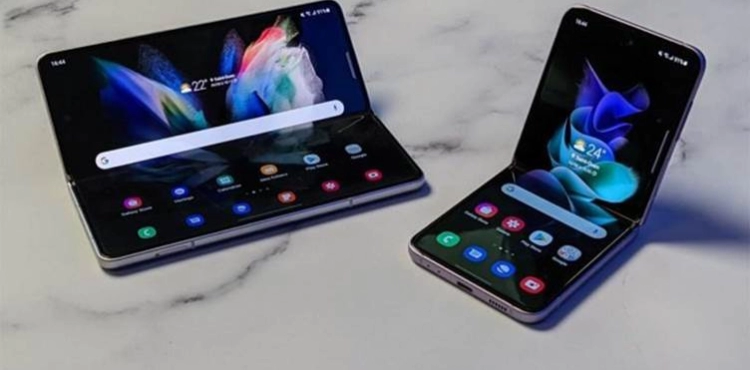Samsung has unveiled two new enhanced models of foldable phones, as the South Korean industry leader faces stiff competition from Chinese companies in a fast-growing market.
The Galaxy ZFold 3 and Galaxy Z Flip 3 offer smoother designs, better water resistance and a more sustainable screen. A phone can be ordered from them from now, to be delivered later in the month in the United States, Europe and South Korea.
These two new models come at a time when Samsung faces fierce competition from Chinese manufacturers, led by Xiaomi, which ranked second in the market in the second quarter of the year.
The Flip 3, whose screen extends to 6.7 inches, is offered at a starting price of $ 999, in line with other high-end phones, compared to $ 1799 for the "Fold 3" phone, which has a screen of 7.6 inches.
"The company is once again expanding the range of capabilities offered by foldable smartphones that give users the flexibility and versatility needed in our fast-paced world," said TM Roh, head of Samsung´s mobile division.
The goal of the "Flip 3" is to provide an affordable foldable phone, while the "Fold 3" replaces devices operating with large screens and is equipped with a stylus that can be used on the screen.
A recent study by the research group Canalys showed that the Chinese “Xiaomi” had ousted “Apple” from second place in the global smartphone market, a market that is mired in turmoil due to a shortage of chip supplies and lockdown measures that have affected consumers.
This study revealed that global sales of smartphones increased by 12%, and the South Korean "Samsung" maintained the lead in the market with 19% of the shares in it.
China´s Xiaomi advanced for the first time to second place with 17% of market share and sales up 83%, according to Canalys.
Apple, in turn, fell to third place, and iPhone sales saw only a 1% increase.
The fourth and fifth positions were held by the Chinese "OPPO" and "Vivo", with about 10% of the market share for each.
Smartphone sales rose 11% from a year ago, but fell after the first quarter of the year, amid a global shortage of semiconductors, the research group said.












